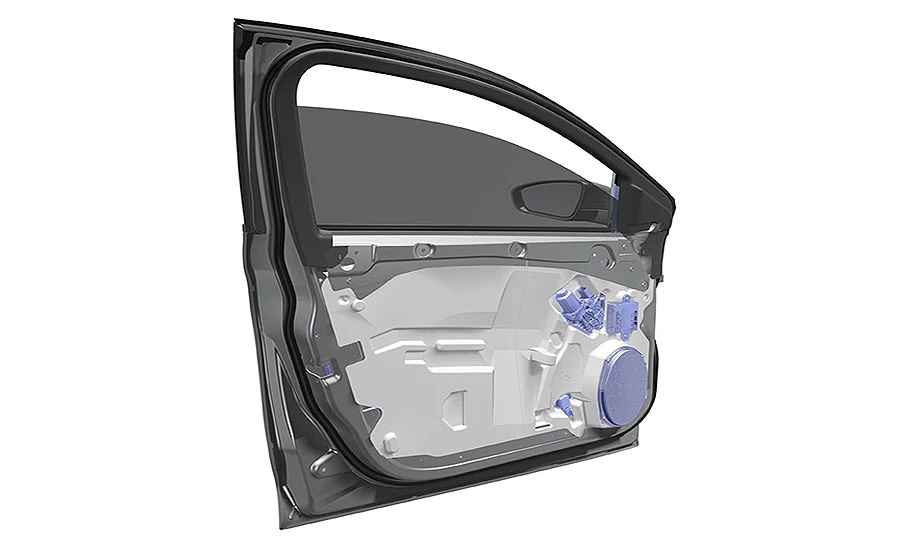When it comes to car design and manufacturing, weight is a crucial factor. Every component of a car, including the doors, must be carefully considered in terms of weight and how it will affect the overall performance of the vehicle.

In this article, we’ll delve into the topic of car door weight, including what factors affect it, average weights for different types of doors and vehicles, and how weight can impact a car’s performance.
Factors that Affect Car Door Weight
Material of the Door
One of the biggest factors that determines a car door’s weight is the material it’s made from. The most common materials used for car doors are steel, aluminum, and carbon fiber.
Steel is the heaviest of the three materials, but it’s also the most affordable and widely used. Aluminum is a lighter alternative to steel, and it’s often used in high-performance and luxury vehicles.
Carbon fiber is the lightest of the three materials, and it’s used in racing and high-performance cars because it offers the best strength-to-weight ratio.
Size and Design of the Door
The size and design of the door also play a role in determining its weight. A larger door will naturally weigh more than a smaller door, and a door with more complex features, such as power windows or built-in speakers, will also be heavier.
Safety Features of the Door
Safety features, such as side-impact beams and reinforced door frames, can add weight to a car door. While these features are important for protecting passengers in the event of a crash, they do come at the cost of added weight.

Average Car Door Weights
Comparison of Different Types of Car Doors
The weight of a car door can vary depending on the type of vehicle it’s used in. A hatchback door, for example, will typically weigh less than a sedan door.
A sport utility vehicle (SUV) door may weigh more than a hatchback door due to its larger size and stronger construction to support off-road use.
Comparison of Different Materials
The material a car door is made from can also have a significant impact on its weight.
For example, a steel door will typically weigh more than an aluminum door of the same size and design. A carbon fiber door will be the lightest of the three materials.
Comparison of Different Car Models and Manufacturers
The weight of a car door can also vary depending on the specific car model and manufacturer. For example, a door for a high-performance sports car may weigh less than a door for a larger family sedan.
How Car Door Weight Affects Performance
Effects on Fuel Efficiency
The weight of a car door can have a significant impact on a vehicle’s fuel efficiency. The heavier the vehicle, the more fuel it will consume to accelerate and maintain speed.
This means that a car with lighter doors will be more fuel efficient than a car with heavier doors.
Effects on Vehicle Handling and Stability
The weight of a car door can also affect a vehicle’s handling and stability. A heavier door will add weight to one side of the vehicle, which can make it more difficult to handle, especially in high-speed turns.
Lighter doors will help to improve the vehicle’s balance and handling, making it more responsive and easier to control.
Effects on Overall Vehicle Weight and Weight Distribution
The weight of a car door is just one aspect of a vehicle’s overall weight and weight distribution. A car with lightweight doors will have a lower overall weight, which can improve performance and fuel efficiency.
However, it’s important to consider the weight of all the other components of the vehicle, such as the engine, transmission, and suspension, to ensure that the weight is distributed properly for optimal performance.

Conclusion
Car door weight is an important factor to consider when it comes to car design and manufacturing. The material of the door, size and design, and safety features all play a role in determining the weight of a car door.
The weight of a car door can affect a vehicle’s performance in terms of fuel efficiency, handling, stability, and overall weight and weight distribution. Understanding car door weight is important for car buyers and owners to make informed decisions about their vehicles.
Additionally, for more information you can check the vehicle weight by checking the car’s specifications and also consult with the car dealer or the manufacturer.
What is the lightest material that is commonly used in car doors?
Carbon fiber is the lightest material that is commonly used in car doors. It offers the best strength-to-weight ratio, making it ideal for high-performance and racing cars.
Does the weight of a car door affect its durability?
The weight of a car door does not directly affect its durability, but rather the material it’s made from. For example, a steel door will typically be more durable than an aluminum door of the same size and design.
Are all car doors made from the same material?
No, car doors can be made from a variety of materials, including steel, aluminum, and carbon fiber. Different manufacturers and car models may use different materials for their doors.
Can the weight of a car door be modified after it’s been installed in a vehicle?
It is possible to modify the weight of a car door after it’s been installed in a vehicle, but it would require removing the door and replacing it with a new one made from a different material or design. It is not a common practice, and will be costly and time-consuming.
Are all car doors of the same size and design?
No, car doors can vary in size and design depending on the type of vehicle they’re used in. For example, a hatchback door will typically be smaller than a sedan door, and a high-performance sports car door may have a different design than a door for a larger family sedan.